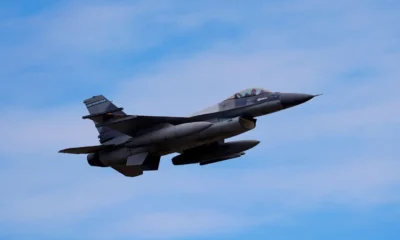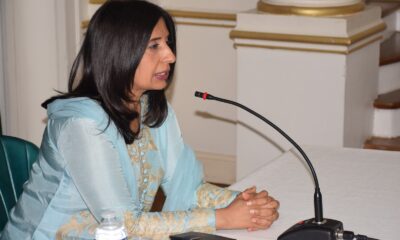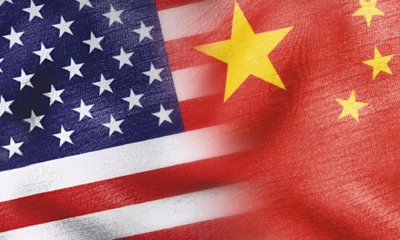World News
Australia’s Bold Move Against Israel and Iran
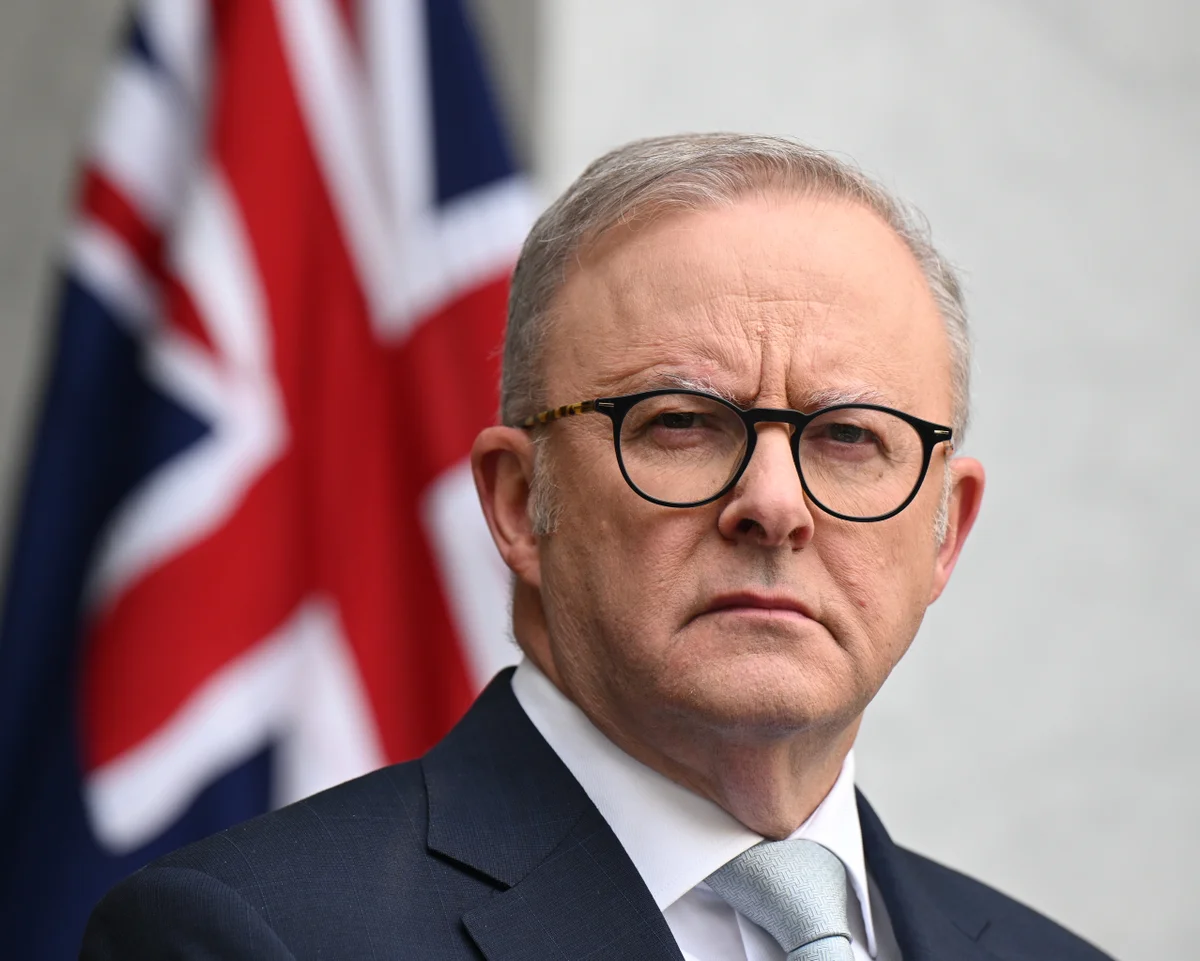
Paris (Imran Y. CHOUDHRY) :- Former Press Secretary to the President, Former Press Minister to the Embassy of Pakistan to France, Former MD, SRBC Mr. Qamar Bashir analysis : In a cascade of landmark decisions that have recalibrated Australia’s global identity, Prime Minister Anthony Albanese has severed diplomatic ties with Iran and launched a bold critique of Israel’s Gaza campaign, embedding a rare blend of moral clarity and strategic audacity into Canberra’s foreign policy. What began as a domestic security response quickly evolved into a profound global statement. The chain of events was triggered by a chilling revelation: Australia’s intelligence agency, ASIO, linked Iran’s Islamic Revolutionary Guard Corps (IRGC) to two antisemitic arson attacks on Australian soil—one at a kosher restaurant in Sydney in October 2024 and another at a Melbourne synagogue in December. Addressing a tense press conference, Albanese declared these acts “aggression orchestrated by a foreign nation on Australian soil.” His government responded decisively, expelling Iran’s ambassador and three senior diplomats, suspending embassy operations in Tehran, and designating the IRGC as a terrorist organization—the first such expulsion since World War II.
Critics were quick to suggest that Canberra’s drastic move was an act of appeasement designed to placate Washington and its closest Middle Eastern ally, Israel. But just two weeks earlier, Albanese had shaken long-standing alliances by delivering a blistering condemnation of Israel, calling it “the aggressor” and accusing it of killing innocent children, violating international law, and trampling fundamental human rights. The statement reverberated across world capitals, triggering a furious response from both Washington and Jerusalem.
Israeli Prime Minister Benjamin Netanyahu lashed out, declaring that “history will remember Albanese for what he is: a weak politician who betrayed Israel and abandoned Australia’s Jews.” Yet Australia stood firm. Home Affairs Minister Tony Burke delivered a sharp rebuttal: “Strength is not measured by how many people you can blow up or how many children you can leave hungry.” In that moment, Canberra signaled that moral convictions, rather than alliances of convenience, would define its foreign policy direction.
This stance became clearer when Albanese took the unprecedented step of formally recognizing Palestine at the United Nations on August 11. While his announcement demanded demilitarization and recognition of Israel’s right to exist, he framed the decision as “humanity’s best hope to break the cycle of violence in the Middle East and bring an end to the suffering and starvation in Gaza.” He called for unrestricted humanitarian access to Gaza, aligning Australia with the mounting chorus of global voices demanding action to save lives. Unlike many leaders who indulge in populist soundbites, Albanese matched his rhetoric with concrete measures, charting a path that blended pragmatism with principle.
Iran, initially welcoming Australia’s condemnation of Israel, was stunned when Canberra turned its punitive measures toward Tehran. Iranian officials denounced the expulsions as politically motivated, promised reciprocal action, and accused Albanese of aligning with Western powers. Yet Australia found unexpected domestic unity, as both Jewish and Iranian-Australian communities expressed support for the government’s actions, arguing that attacks targeting religious communities could not go unanswered. By placing sovereignty, accountability, and human rights at the center of its response, Australia carved a unique and independent path between competing global narratives.
The geopolitical drama intensified with a development that dwarfed all others in humanitarian gravity: on August 22, 2025, the Integrated Food Security Phase Classification (IPC)—the United Nations’ leading food crises authority—formally declared a famine in Gaza City, the first such declaration in the Middle East’s modern history. Over 500,000 people, roughly one-quarter of Gaza’s population, face catastrophic hunger, with projections warning that the famine will spread to Deir al-Balah and Khan Younis within weeks if aid does not reach civilians immediately. António Guterres, the UN Secretary-General, called the famine “a human-made disaster” and “a failure of humanity.” Aid agencies described Gaza as “on the brink of mass starvation,” with children dying daily from malnutrition and hospitals collapsing under the weight of preventable disease.
For Israel, this declaration has intensified global scrutiny and deepened accusations of war crimes, particularly claims that starvation is being weaponized in Gaza. Israel has categorically rejected the UN’s findings, calling them “lies” and accusing the IPC of political bias. For the United States, the famine raises uncomfortable questions about its role in sustaining Israel’s military campaign while simultaneously portraying itself as a defender of human rights. Across Europe, over 200 diplomats have signed letters urging immediate ceasefires and humanitarian corridors, amplifying pressure on Washington to reconsider its unconditional support. For Gazans, however, the political debates offer no relief. With food, medicine, and clean water scarce, despair has become the only constant, and the suffering is worsening by the hour.
Amid this spiraling humanitarian crisis, a controversial narrative has resurfaced in political discourse: allegations that Donald Trump, two years ago, converted to Judaism—claims widely circulated by critics who argue that his unwavering support for Israel’s Gaza campaign stems from personal alignment rather than policy calculation. While no credible evidence or mainstream reporting substantiates this claim, its viral spread underscores the growing perception that Washington’s complicity in Gaza’s suffering is ideological as much as strategic. The narrative, factually unverified though it remains, highlights an emerging reality of modern geopolitics: in an era of mass disinformation, perception can shape global reaction as powerfully as verified truth.
Australia’s choices, by contrast, illustrate how a medium power can leverage moral authority without abandoning strategic balance. By openly condemning Israel’s actions, recognizing Palestinian statehood, and expelling Iran’s diplomats for acts of aggression, Albanese charted a course distinct from traditional Western bloc politics. He showed that alliances need not demand silence in the face of injustice. This duality—standing firm against Iranian-sponsored violence while also challenging Israel’s siege of Gaza—signals that Canberra seeks to define its identity through principles, not dependence.
The broader implications, however, extend beyond Australia’s example. Albanese’s leadership exposes a void where other powers have hesitated. Muslim-majority countries, sitting on vast economic leverage through oil, trade, and investments, have yet to mount coordinated efforts to pressure Israel to end its military campaign and allow unfettered aid into Gaza. European nations, fragmented by domestic politics and strategic dependencies, remain largely confined to symbolic statements rather than actionable policies. BRICS nations, meanwhile, have voiced rhetorical support for Palestinian rights but lack collective political will to impose tangible consequences.
Here lies the deepest challenge for the global order: unless other great powers—the likes of China, Russia, the European Union, and emerging economic blocs—act decisively, collectively, and concretely to stop the ongoing massacre in Gaza and the West Bank, they must abandon any illusion of commanding respect on the world stage. The International Court of Justice has issued rulings; UN resolutions have condemned the bloodshed; yet hesitation continues to prevail. Without coordinated diplomatic, economic, and—if required—non-kinetic or kinetic pressure, the U.S. will remain what it is today: the sole superpower dictating the terms of morality and geopolitics.
Anthony Albanese’s actions are far from symbolic gestures; they represent a rare assertion of conscience in an era of complicity. He demonstrated that ethical governance can coexist with strategic imperatives and that democracies need not trade their values for alliances. At a time when famine stalks Gaza’s civilians, starvation grips hundreds of thousands, and the international system dithers, Australia has shown that leadership can mean more than words. It can mean acting when others remain paralyzed.
This moment belongs not just to Australia but to the world. If other nations find the courage to match conviction with decisive action—whether through sanctions, trade pressures, or coordinated humanitarian interventions—the tide of Gaza’s suffering can still be reversed. But if they remain silent and fractured, allowing famine to devour children and displacement to erase communities, history will record their hesitation as complicity. In the vacuum left by inaction, the United States will continue to dominate not because of moral superiority but because it alone dares to act. Albanese has reminded the world that peace without justice is hollow, security without compassion is unsustainable, and leadership without conscience is meaningless.
World News
Romania becomes second Nato country to report Russian drone in its airspace
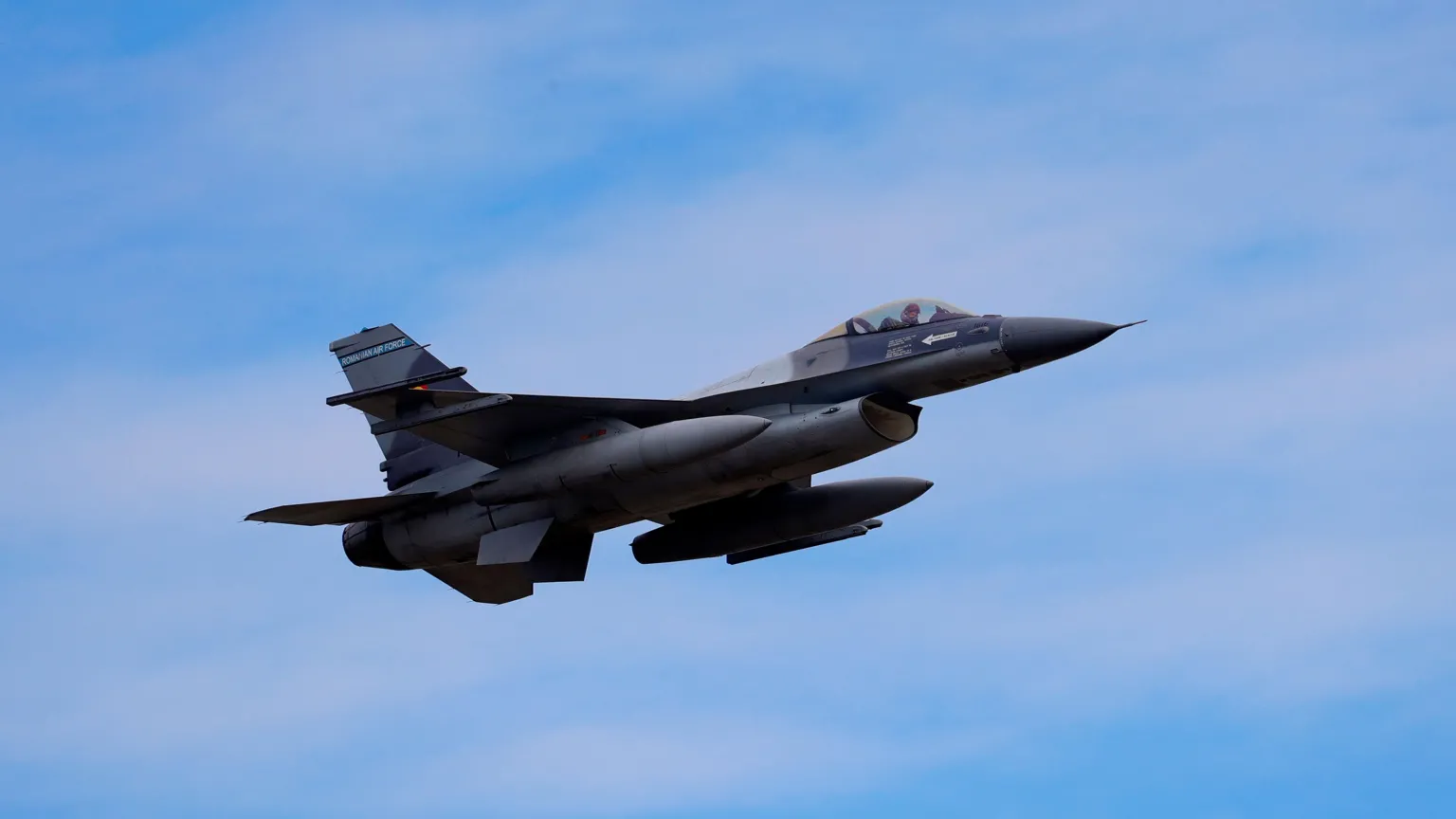
Romania says a Russian drone has breached its airspace – the second Nato country to report such an incursion.
Romanian fighter jets were in the air monitoring a Russian attack in Ukraine on Saturday and were able to track the drone near Ukraine’s southern border, the defence ministry said in a statement.
Ukrainian President Volodymyr Zelensky said the incursion could not be a mistake – it was “an obvious expansion of the war by Russia”. Moscow has not commented on the Romanian claims.
On Wednesday, Poland said it had shot down at least three Russian drones which had entered its airspace.
In its statement, Romania’s defence ministry said it detected the Russian drone when two F-16 jets were monitoring they country’s border with Ukraine, after “Russian air attacks on Ukrainian infrastructure on the Danube”.
The drone was detected 20km (12.4 miles) south-west of the village of Chilia Veche, before disappearing from the radar.
But it did not fly over populated areas or pose imminent danger, the ministry said.
Poland also responded to concerns over Russian drones on Saturday.
“Preventative operations of aviation – Polish and allied – have begun in our airspace,” Prime Minister Donald Tusk said in a post on X.
“Ground-based air defence systems have reached the highest state of readiness.”
Earlier this week Russia’s defence ministry said there had been “no plans” to target facilities on Polish soil.
Belarus, a close Russian ally, said the drones which entered Polish airspace on Wednesday were an accident, after their navigation systems were jammed.
On Sunday, the Czech Republic announced it had sent a special operations helicopter unit to Poland.
The unit consists of three Mi-171S helicopters, each one capable of transporting up to 24 personnel and featuring full combat equipment.
The move is in response to Russian’s incursion into Nato’s eastern flank, the Czech Defence Minister Jana Cernochova said.
In response to the latest drone incursion, President Zelensky said the Russian military “knows exactly where their drones are headed and how long they can operate in the air”.
He has consistently asked Western countries to tighten sanctions on Moscow.
US President Donald Trump also weighed in on airspace breach earlier this week, saying he was “ready” to impose tougher sanctions on Russia, but only if Nato countries met certain conditions, such as stopping buying Russian oil.
Russia launched a full-scale invasion of Ukraine in February 2022 and has been making slow progress in the battlefield.
Trump has been leading efforts to end the war, but Russia has intensified attacks on Ukraine since President Vladimir Putin returned from a summit with Trump in Alaska last month.
World News
French President Emmanuel Macron appoints Defence Minister Sebastien Lecornu as new Prime Minister
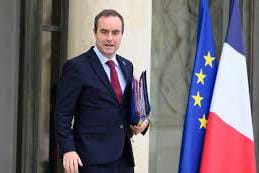
Paris ( Imran Y. CHOUDHRY):- French President Macron late Tuesday appointed Defense Minister Sébastien Lecornu as France’s new prime minister, the country’s fourth in about a year.
Lecornu, 39, is the youngest defence minister in French history and architect of a major military buildup through 2030, spurred by Russia’s war in Ukraine.
A former conservative who joined Macron’s centrist movement in 2017, he has held posts on local authorities, overseas territories and during Macron’s yellow vest “great debate”, where he managed mass anger with dialogue. He also offered talks on autonomy during unrest in Guadeloupe in 2021.
His rise reflects Macron’s instinct to reward loyalty, but also the need for continuity as repeated budget showdowns have toppled his predecessors and left France in drift.
There were celebrations across France after Prime Minister François Bayrou lost a vote of confidence in the National Assembly on Monday. MPs ousted Bayrou by 364 votes to 194 over his austerity budget, which aimed to cut €44 billion to reduce the country’s national debt. ‘Farewell drinks’ for the prime minister were held in several cities, with many happy to see the back of a prime minister widely seen as having little popular mandate. However, there was concern in other quarters over France’s growing political instability.
World News
Superpowers That Profess Peace but Endanger the Globe

Paris (Imran Y. CHOUDHRY) :- Former Press Secretary to the President, Former Press Minister to the Embassy of Pakistan to France, Former MD, SRBC Mr. Qamar Bashir analysis : In a world where powerful nations proudly proclaim themselves as guardians of peace, human rights, and prosperity, humanity finds itself facing a bitter irony. The very countries that claim to champion democracy and protect innocent lives are also the largest producers and exporters of weapons of mass destruction. They present themselves as leaders of a compassionate, progressive, and peaceful global order, yet their economies thrive on creating machines of death that fuel wars, destabilize regions, and leave millions of innocent civilians suffering.
The United States sits atop this paradox, projecting itself as the ultimate protector of human rights, democracy, and freedom, while simultaneously leading the world in arms production. American defense giants like Lockheed Martin, RTX (Raytheon Technologies), Northrop Grumman, Boeing, and General Dynamics dominate the global weapons market, generating defense revenues exceeding $246 billion annually. These corporations design and build technologies so advanced and lethal that they could destroy the world many times over. More troubling is the reality that the survival of these companies, and the jobs and profits they sustain, depends on perpetual conflict. The more wars there are, the greater the demand for their weapons, and the greater the growth of their revenues and influence. In 2024, the United States alone accounted for 43% of the world’s total arms exports, while global military spending crossed an unprecedented $2.44 trillion.
Following closely behind, the United Kingdom proudly claims the mantle of being a defender of global rights and humanitarian values, yet its defense sector plays an equally significant role in perpetuating conflicts. Its leading defense contractor, BAE Systems, ranks among the top global arms manufacturers, earning nearly $30 billion annually from the production of fighter jets, warships, and missile systems that find their way into war-torn regions. While London speaks of upholding peace and protecting civilians, its weapons often contribute directly to the destruction of those very lives.
China and Russia, positioned as counterweights to Western dominance, are no less invested in the economics of militarization. China, under the banner of “peaceful modernization,” has emerged as the third-largest weapons producer, with companies like AVIC, Norinco, and CETC collectively earning over $57 billion annually. It has developed cutting-edge systems, including the J-20 stealth fighter, hypersonic missiles, and naval destroyers, strengthening its position across the Asia-Pacific. At the same time, the United States’ creation of an expansive ring of missile defense systems stretching across the South China Sea, Japan, and the Asia-Pacific has created a dangerous tinderbox where even a minor miscalculation could ignite a devastating conflict. Russia, through its state-owned conglomerate Rostec, generates over $21 billion annually by producing S-400 missile defense systems, Su-35 fighter jets, attack helicopters, and artillery systems, supplying weapons not only for its own military operations but also to proxy nations aligned with Moscow’s interests. In Ukraine, Russian-made weapons and Western-supplied arms clash daily, turning the country into a laboratory of destruction where innocent civilians suffer the consequences of great-power rivalry.
Amid these competing superpowers, Israel presents yet another paradox. While accusing other nations, particularly Iran, of pursuing weapons of mass destruction, Israel itself is a major arms exporter and maintains one of the most advanced nuclear and missile capabilities in the world. Its defense firms collectively generate over $12 billion annually, developing cutting-edge drones, anti-missile systems, and precision-guided munitions. Many of these technologies are exported to regions already embroiled in conflict, while others are deployed directly in Gaza and the West Bank, where their usage has caused devastating civilian casualties. Israel’s defense industry has positioned the country as both a buyer and seller of destruction, all while claiming to act solely in the name of security and self-defense.
This is the grim irony of our time: the countries that boast of being peacemakers and champions of human rights are also the largest merchants of war. Their economies are heavily tied to weapons production, creating a vicious cycle where economic prosperity depends on sustaining conflict. A single corporation like Lockheed Martin earns more annually than the combined GDP of many low-income nations. Instead of directing resources toward alleviating poverty, combating climate change, and advancing healthcare and education, the global powers pour trillions into developing weapons capable of wiping out humanity.
The consequences of this relentless militarization are profound. As these powerful nations produce increasingly destructive weapons, they make the world less stable, less safe, and less humane. Wars in Ukraine, Gaza, Yemen, Kashmir, and the South China Sea are not isolated tragedies—they are symptoms of a deeper sickness in a world where power, greed, and profit dictate global priorities. Civilians pay the ultimate price, as bombs flatten their homes, missiles kill their children, and entire generations grow up amid rubble and trauma. Every year, thousands of innocent men, women, and children are killed or maimed, not because they started wars, but because they are caught between powers competing for influence and dominance.
What makes this tragedy even more alarming is that the very powers manufacturing these weapons cannot escape the chaos they unleash. History has repeatedly shown that destruction spreads. A world destabilized by endless wars, fueled by weapons flowing across borders, eventually threatens the prosperity, security, and stability of the nations that created this vicious cycle. The illusion that they can remain islands of peace and prosperity while exporting destruction is fading. No society is immune to the blowback of perpetual conflict.
The rise of smaller players in the global arms trade further intensifies this dangerous dynamic. Countries like Turkey, once peripheral in weapons manufacturing, now have six firms ranked among the world’s top 100 arms producers, supplying drones, artillery, and combat vehicles used in conflicts stretching from Libya to the Caucasus. Israel, too, stands at the forefront of the military-industrial race, while increasingly volatile regions like the Middle East have become testing grounds for deadly technologies designed and exported by these so-called peacemakers.
The earth itself, a fragile blue dot in the vastness of the universe, sustains life only because of rare, delicate conditions that allow us to exist. Yet, in the race for military dominance and profit, humanity edges closer to undermining the very survival of this planet. Every year, advances in weapons technology push us further toward the precipice, while diplomacy and cooperation take a back seat to greed and power politics. If we continue down this path, the destruction these nations sow abroad will inevitably circle back, consuming the prosperity and security they seek to protect.
It does not have to be this way. The trillions spent on creating weapons of mass destruction could instead be invested in eliminating poverty, improving education, expanding healthcare, and combating climate change. Innovation and technology can uplift humanity rather than destroy it. But this requires leadership—true leadership—not the hypocrisy of nations that preach peace while building instruments of death. It requires recognizing that peace cannot be manufactured by fueling conflict, that real security lies not in amassing weapons, but in building trust, cooperation, and fairness among nations.
The nations that pride themselves on being the architects of a just and peaceful global order must confront the uncomfortable truth: as long as their economies depend on producing tools of destruction, genuine peace will remain out of reach. The business of war has made the world less safe, less fair, and less hopeful. And unless humanity takes a collective stand to break this cycle, we may find ourselves on a path from which there is no return.
This is the lesson history has taught us time and again, yet we forget it with dangerous consistency. If the powers that dominate today do not change course, they too will face the same destruction they unleash upon others. It is time to choose a different path—one that values life over profit, compassion over greed, and cooperation over conflict. The survival of humanity depends on our willingness to dismantle the engines of destruction we have built and embrace the possibility of creating a world where peace is more than a slogan; it is a reality.
-

 Europe News7 months ago
Europe News7 months agoChaos and unproven theories surround Tates’ release from Romania
-

 American News7 months ago
American News7 months agoTrump Expels Zelensky from the White House
-

 American News7 months ago
American News7 months agoTrump expands exemptions from Canada and Mexico tariffs
-

 American News7 months ago
American News7 months agoZelensky bruised but upbeat after diplomatic whirlwind
-

 Art & Culture7 months ago
Art & Culture7 months agoThe Indian film showing the bride’s ‘humiliation’ in arranged marriage
-

 Art & Culture7 months ago
Art & Culture7 months agoInternational Agriculture Exhibition held in Paris
-

 Politics7 months ago
Politics7 months agoWorst violence in Syria since Assad fall as dozens killed in clashes
-

 Politics7 months ago
Politics7 months agoUS cuts send South Africa’s HIV treatment ‘off a cliff’






